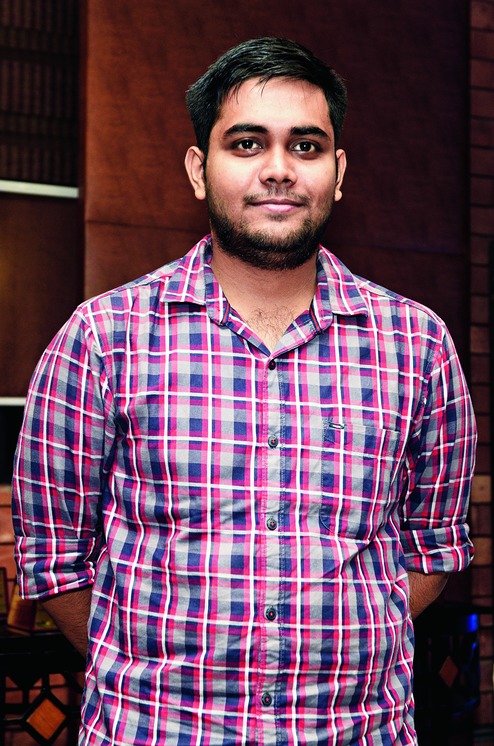
Calcutta:
Sobhan Mukherjee of Bansdroni has been breaking many stereotypes.
Since last year, the postgraduate student of geography at Asutosh College been spending over Rs 11,000 a month to stock up sanitary napkins at public toilets to promote menstrual hygiene. Till now, he has stocked up 30 toilets with 100 sanitary pads.
“I buy branded pads for Rs 3 and sell them at CMC’s pay-and-use toilets for Rs 2,” said the student who procures fund for his Bandhan Sanitary Napkin Project by running a little magazine. Some of the areas he has covered include Bansdroni, Golpark, Garia and Sonarpur.
On Monday, he was part of a campaign organised by Unicef to mark Menstrual Hygiene Day. #LetsTalkAboutPeriods saw government officials, activists and enthusiasts joining hands to break the culture of silence and promote menstrual hygiene.
The campaign aims to spread awareness about menstrual hygiene through various media. It also plans to engage all sections of society in discussions to break myths and taboos surrounding the menstrual cycle.
“When I found my friend so uncomfortable and distressed to talk about the issue, I realised I needed to do something to break the stereotype,” said Sobhan, who is also pursuing health studies at Indian Institute For Health Training.
He now wants to build a team of young boys and girls who will reach out to villages where menstrual health is a bigger issue. “Let boys and girls of a particular village fund their own Bandhan Sanitary Napkin project. I need to build a self-sustaining model,” he added.
As of now, around 40 per cent of girls in Bengal are using sanitary pads, said Sonali Datta Ray, joint secretary in the panchayat and rural development department. “There are sanitary napkin incinerator in around 12 per cent schools and vending machines in around eight per cent schools in rural areas,” said Datta Ray, who was part of a panel discussion on breaking myths.
Burdwan, Purulia and Nadia are some of the districts that are forerunners in the effort. “Here the schools, panchayats and the health department are working in tandem to promote safe hygiene among students,” she added.
“We need to focus on sensitising men and encourage them to talk about the issue,” added Dibyendu Sarkar, additional secretary in the panchayat and rural development department and another participant in the panel discussion.
Other participants included Ananya Chakraborti, chairperson of West Bengal Commission for Protection of Child Rights, and Choten Lama, secretary of panchayat and rural development.
“When you pair lack of awareness with cultural barriers, there is a higher risk of girls using unsanitary material, not taking the proper diet, not recognising any irregularity in their menstrual cycle and thus inviting health complications,” added Mohammad Mohiuddin, Unicef chief in Bengal.
source: http://www.telegraphindia.com / The Telegraph,Calcutta,India / Home> Calcutta / by Chandreyee Ghose / May 29th, 2018